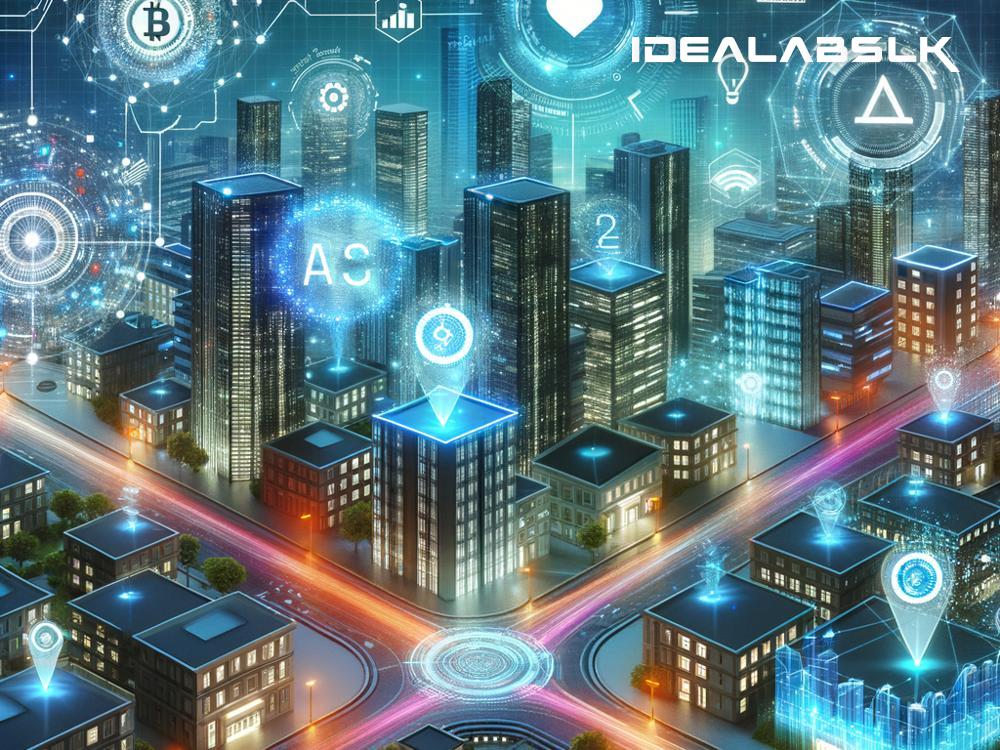The Future of Real Estate: How AI and Blockchain Are Changing the Industry
The world of buying and selling homes is transforming in ways we could have only dreamed of a few years back. With the advent of artificial intelligence (AI) and blockchain technology, the real estate industry is not just changing; it's stepping into the future. Let's break down these complex-sounding terms and take a look at how they're making house hunting and selling easier, faster, and more secure.
What is AI, and What's It Doing in Real Estate?
Imagine having a super smart robot buddy who knows exactly what you want, even before you say it. That's AI for you, in the real estate context. AI, or artificial intelligence, is when computers are programmed to think and learn like humans. In real estate, this technology is doing some pretty cool stuff:
-
Matching People to Houses: AI algorithms can analyze hundreds of your likes, dislikes, past choices, and even your online behavior to recommend homes that suit you best. It's like having a personal real estate agent inside your computer or phone, who works tirelessly to find your dream home.
-
Price Prediction: AI can look at tons of data – from recent sales in the neighborhood to the economic trends affecting property prices – and predict how much a house should cost now and in the future. This means buyers and sellers can make smarter, data-backed decisions.
-
Virtual Tours and Staging: Through AI, potential buyers can take virtual tours of homes and see furnished versions of empty houses without leaving their couch. This technology can even customize the furniture and decor in the virtual space according to the viewer's taste, making it easier to imagine living there.
And Then, There's Blockchain
Blockchain might sound like a trendy buzzword, but it has the potential to revolutionize how property transactions are made. At its core, blockchain is a super secure way of recording transactions that is very difficult to hack or cheat. Here's how blockchain is shaking things up in real estate:
-
Making Transactions Smoother and Safer: Traditional property deals involve loads of paperwork, middlemen, and the risk of fraud. Blockchain can simplify the process by securely recording every part of the transaction, from the initial agreement to the final payment, making everything transparent and tamper-proof.
-
Tokenization of Property: This might sound futuristic, but properties can now be "tokenized," meaning they can be divided into digital shares that can be bought and sold. This could open up property investments to more people, making it possible to own a piece of a building or land the same way you might own stocks.
-
Streamlining Property Management: For those who own rental properties, blockchain can automate many tedious tasks like collecting rent, managing contracts, and even ensuring that maintenance work is carried out efficiently.
What Does This Mean for You?
Whether you're looking to buy a new home, sell one, or invest in property, these technologies are opening up a world of possibilities:
-
Faster, More Efficient Transactions: With AI and blockchain, the days of agonizingly slow and opaque real estate deals could be coming to an end. Transactions could become quicker and more user-friendly, with less paperwork and waiting.
-
More Power to Buyers and Sellers: AI empowers buyers and sellers with data and insights that were previously available only to real estate professionals. Meanwhile, blockchain offers more direct and secure ways to conduct transactions, reducing reliance on intermediaries.
-
New Investment Opportunities: The tokenization of real estate could democratize property investment, allowing more people to participate in the market, even with limited capital.
In conclusion, the integration of AI and blockchain into real estate is not just about adopting new technologies; it's about making the entire process of buying, selling, and managing properties more accessible, transparent, and efficient for everyone. While these technologies are still evolving and their full impact remains to be seen, one thing is clear: the future of real estate looks nothing like its past. As we move forward, expect to see these innovations continue to change the landscape of the industry, bringing us closer to a world where our interactions with real estate are as smart as the technologies driving them.

